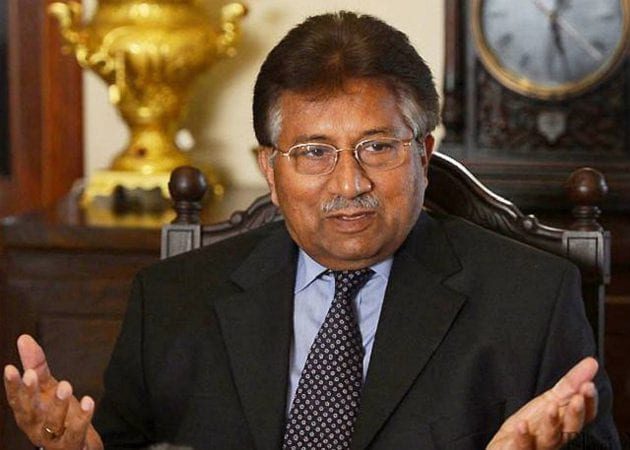
Pervez Musharraf: The General behind Kargil war and failed Agra Summit

Former Pakistan president and Army chief Pervez Musharraf, who is suffering from Amyloidosis and battling with life in Dubai, is remembered in India mainly as the person behind the Pakistan Army’s intrusion into the Kargil region which led to the Kargil war in 199 and for the failed Agra summit a couple of years later.
Born in Delhi on August 11, 1943, Musharraf joined the Pakistan Army in 1964 and rose to become a General – promoted by then prime minister Nawaz Sharif – in 1998. As head of the armed forces, he led the Kargil infiltration that resulted in a war in 1999. The Kargil war came at the time when the Indian Prime Minister was in Pakistan to meet Sharif for a well-publicised Lahore summit.
Accused of backstabbing
During Prime Minister Atal Bihari Vajpayee’s visit to Pakistan, both countries had acceded and successfully ratified the Lahore Declaration and pledged to make joint efforts for peace and stability in South Asia. The Kargil war was a major blow to the Lahore treaty and it stalled the treaty as the relations between the two countries suffered a serious setback.
Also read: Pak SC to entertain Musharraf’s plea only after he surrenders: Report
With Pakistan attracting international criticism for Kargil, Sharif said that he knew nothing about the intrusion and that Musharraf had backstabbed him and kept him in the dark. After months of contentious relations between Sharif and Musharraf, Sharif unsuccessfully attempted to remove Musharraf as the army’s leader. In retaliation, the army staged a coup in 1999, which allowed Musharraf to take over Pakistan as president in 2001.
Soon after the same year, Vajpayee and Musharraf decided to meet in Agra for a two-day summit from July 14 to 16. It was organized with the aim of resolving long-standing issues between the two countries. At this meeting, a proposal was made to drastically reduce nuclear arsenals, and other issues involving the Kashmir dispute, and cross-border terrorism. However, negotiations broke down despite five one-to-one rounds between the two leaders and hours of discussion between the two delegations. and the process collapsed.
Musharraf in his book ‘In the Line of Fire’, released in 2006, said that both he and Vajpayee had been “humiliated” at the Agra summit “by someone above” the two of them.
The failed Agra Summit
Writing about the failed summit, Musharraf further claimed that twice he had decided to cut short his stay in Agra after the Indians had “backed out” of what had been agreed earlier. However, he had been persuaded by his diplomats not to do so. According to the General’s account of the events in Agra, after two prolonged interactions with Vajpayee, a “balanced” joint declaration acceptable to both of them was drafted.
Later, in 2010, Musharraf said that the Agra Summit would have been a brilliant strategic and public relations victory for him (Musharraf) and Pakistan, had a “Hidden Hand” not intervened to stop the Indian side from recognizing Kashmir as a key issue once again and insisted that the Shimla agreement of July 1972 be mentioned in the draft agreement.
According to Musharraf, it was Vivek Katju, then a joint secretary for the Iran-Pakistan-Afghanistan (IPA) Division in the Ministry of External Affairs, and not the country’s then Deputy Prime Minister and Home Minister L K Advani, as many then believed, who played spoilsport, and ensured the summit’s collapse and sabotage.
Advani, in his autobiography, My Country My Life, had refuted the allegations and said that Musharraf was a slippery customer, keen to rewrite India-Pakistan relations totally on his own terms.
Tribute to Vajpayee
Though the summit between the two leaders failed, Musharraf remembered Vajpayee fondly following the death of the former Indian Prime Minister in August 2018. Calling him a great man, the former military ruler of Pakistan said that Vajpayee’s demise was a great loss for both India as well as Pakistan.
Speaking to TV channel, he said that Vajpayee was a great leader, poet and orator. He further shared a lighter moment with Vajpayee during the 2001 Agra Summit, and it was about the culinary skills of the former Indian prime minister.
“My foreign minister told me that Vajpayee was quite fond of cooking. I then asked him as to what he liked to cook, and he told me kheer. Since I also like kheer, I discussed with him the qualities that kheer should have,” said Musharraf.


